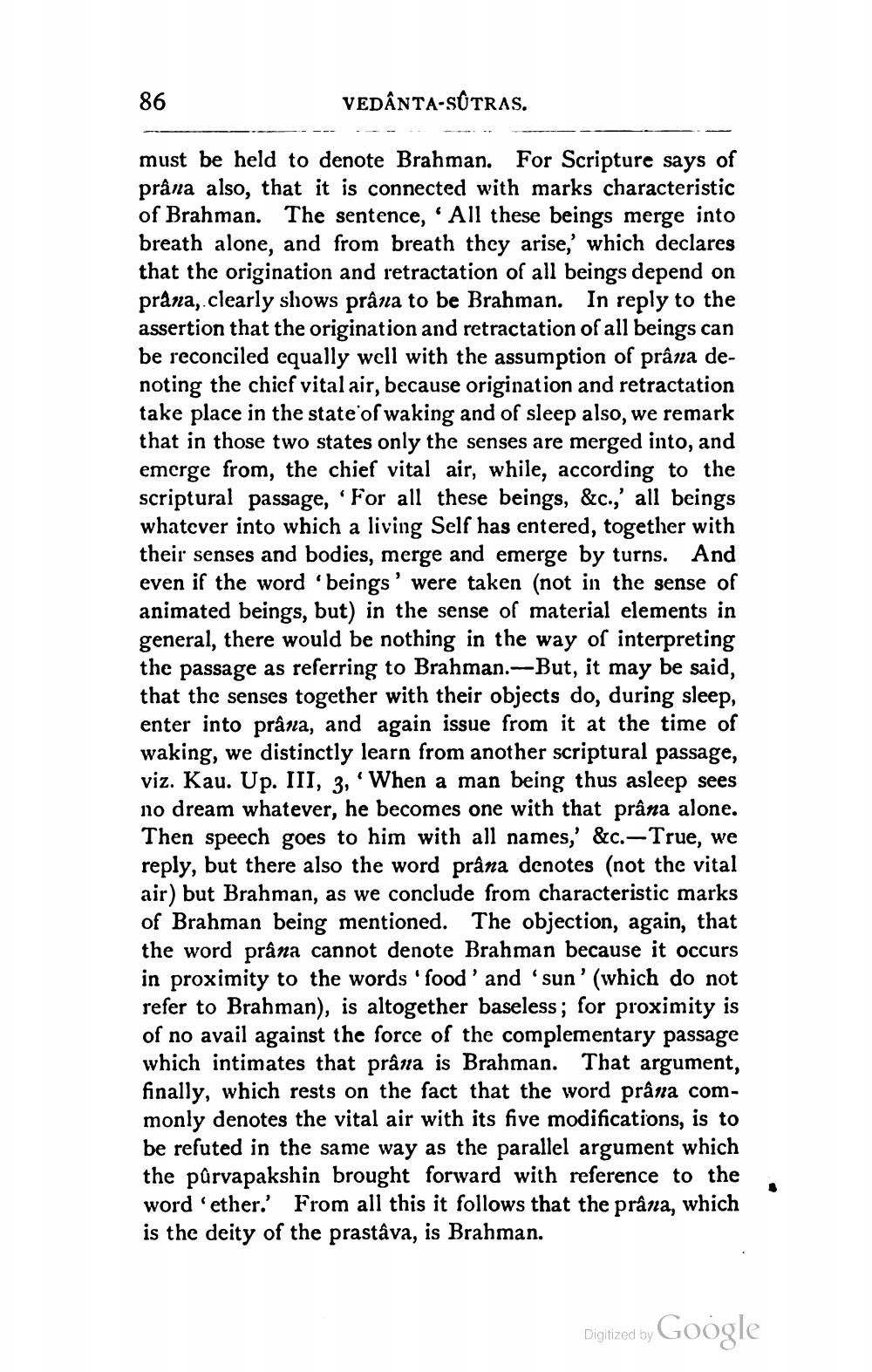________________
86
VEDÂNTA-SÛTRAS.
must be held to denote Brahman. For Scripture says of prâna also, that it is connected with marks characteristic of Brahman. The sentence, 'All these beings merge into breath alone, and from breath they arise,' which declares that the origination and retractation of all beings depend on prana, clearly shows prâna to be Brahman. In reply to the assertion that the origination and retractation of all beings can be reconciled equally well with the assumption of prâna denoting the chief vital air, because origination and retractation take place in the state of waking and of sleep also, we remark that in those two states only the senses are merged into, and emerge from, the chief vital air, while, according to the scriptural passage, For all these beings, &c.,' all beings whatever into which a living Self has entered, together with their senses and bodies, merge and emerge by turns. And even if the word 'beings' were taken (not in the sense of animated beings, but) in the sense of material elements in general, there would be nothing in the way of interpreting the passage as referring to Brahman.-But, it may be said, that the senses together with their objects do, during sleep, enter into prâna, and again issue from it at the time of waking, we distinctly learn from another scriptural passage, viz. Kau. Up. III, 3, 'When a man being thus asleep sees no dream whatever, he becomes one with that prâna alone. Then speech goes to him with all names,' &c.— True, we reply, but there also the word prâna denotes (not the vital air) but Brahman, as we conclude from characteristic marks of Brahman being mentioned. The objection, again, that the word prâna cannot denote Brahman because it occurs in proximity to the words 'food' and 'sun' (which do not refer to Brahman), is altogether baseless; for proximity is of no avail against the force of the complementary passage which intimates that prâna is Brahman. That argument, finally, which rests on the fact that the word prâna commonly denotes the vital air with its five modifications, is to be refuted in the same way as the parallel argument which the pûrvapakshin brought forward with reference to the word 'ether. From all this it follows that the prâna, which is the deity of the prastáva, is Brahman.
Digized by Google




